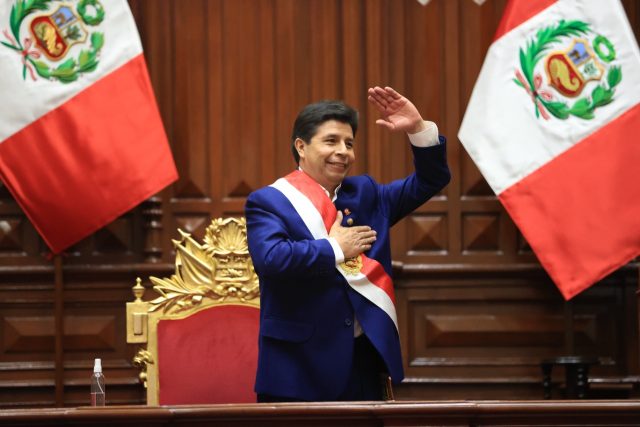The political crisis that Peru is dragging on worsened Thursday night after Congress approved the start of an impeachment process against President Pedro Castillo and which is already the third he has faced in just 16 months of government.
It was a hectic day, since the mission of the Organization of American States (OAS) presented its report on Peru and recommended a «truce» and a dialogue between the Executive and Legislative powers, reports RT.
But it was useless because, hours later, the majority of Congress voted in favor of admitting the «vacancy», the institutional mechanism that exists to depose the current president «for moral incapacity».
It was also agreed that the process will take place next Wednesday, so Castillo will have to go to the plenary session to defend himself. Later, the congressmen will vote whether to remove him or not.
They already tried it on December 8 of last year, when the opponents did not reach the necessary votes to debate the vacancy in plenary session. They succeeded in their second attempt, on March 28, but they only added 55 of the 87 votes required to put an end to the current government.
While the full Congress accepted the process, the Constitution and Regulations Commission approved an initiative to advance the elections so that Castillo leaves power on July 28, 2023, that is, just two years after taking office, a position to be held for a period of five years.
This initiative must still be discussed in plenary session, but it shows that, in one way or another, the opposition will continue to press to prevent Castillo from ending his five year governmental period.The debate in Peru
A two and a half hour session was enough for the Peruvian Congress to approve the third vacancy motion which, on this occasion, was presented by Edward Málaga (Partido Morado) with a majority of 73 votes in favor, 32 against and six abstentions.
During the discussion, the former president of the Council of Ministers and current congressman, Guido Bellido, appealed for both the Executive and the Legislative to respect democracy and let each other do their respective work.
Roberto Sánchez (Cambio Democrático) also made a call to respect the truce that the OAS had proposed a while before, but the opponents insisted on advancing towards the removal of the president.
«There is a president who cannot distinguish between good and evil», warned Flor Pablo Medina (Integridad y Desarrollo), while Diego Bazán (Avanza País) assured that he will never sit down to talk «with a corrupt government».
Like him, most of the opposition speeches were based on allegations of corruption that haunt Castillo and that have led him to become the Peruvian president who has faced the greatest number of constitutional complaints.
The president’s permanent response is that the accusations are part of the «coup d’état» that his rivals have wanted to commit since the presidential sash was placed on him.
In parallel, the Constitution and Regulation Commission, chaired by the Fujimorista Hernando Guerra, advanced with an opinion that cuts the presidential mandate and that of the congressmen, which implies that next year all the authorities of the Executive and Legislative would undergo a new electoral process.
The former president of Congress Lady Camones (Alianza para el Progreso) supported the opinion and proposed that it be approved even before debating the political reform, which provides for the creation of a bicameral system and parliamentary re-election.
This working group also voted to reduce from 87 to 66 the number of votes required to declare the president’s «moral incapacity vacancy».
If approved, it will be a new tool to depose Castillo in the event that their attempt to oust him next Wednesday fails.












